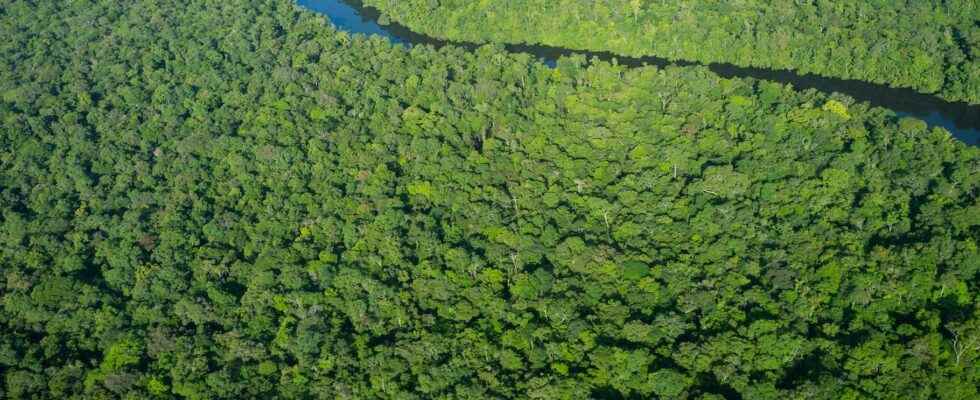This Monday, March 21, the world celebrated the International Day of Forests. To remind everyone of the importance of preserving these ecosystems. Now researchers point out that it’s not just about carbon storage. Deforestation threatens to upset a whole balance.
You will also be interested
[EN VIDÉO] Deforestation continues at an alarming rate More than 43 million hectares were lost between 2004 and 2017 according to a WWF report; the equivalent of two thirds of the surface of France.
Forests are perhaps our best allies in the face of global warming. Because they absorb a significant part of the carbon dioxide (CO2) present in our atmosphere. But affirmation may soon have to come together in the past tense. Because with the deforestationforests – especially those in the tropics – are beginning to release more CO2 than they store.
And this is not the only problem posed by deforestation in weather. Far from it teach us today researchers from the Alliance for the Development of Sustainable and Resilient Agriculture and Food Systems. They studied how deforestation in the tropics influences a series of biophysical factors. Factors such as thealbedothe configuration of windsthe local distribution of heat and even the composition of clouds or water cycles.
Factors which themselves have effects on the well-being of human societies, on poverty, on theAgriculture and on the capacity of the countries concerned to feed their populations. All with the aim of providing policy makers with data solid about the advantages, particularly economic ones, of preventing deforestation. Because let us remember that some 1.6 billion people in the world depend directly on forestswhether for their food, for shelter, for their energy or to find remedies or income.
The researchers were particularly interested in the local redistribution of heat. Because much like an umbrella allows the person holding it to stay dry, the tops of trees know how to disperse heat. Distribute it to the heights. Without a forest, on the other hand, nothing prevents sunshine to touch the ground directly.
The commitments to halt deforestation have been loud & clear.
Yet, each year we still degrade & destroy some 10 million hectares of forest.
It is time we see tangible & credible action. #IntlForestDaypic.twitter.com/74Gy7v9XbK
— António Guterres (@antonioguterres) March 21, 2022
Water cycle and albedo
The researchers also analyzed the consequences of deforestation on the water cycle. Another factor they consider particularly important. Once the trees have been cut, in fact, the pump that transfers water from the surface to the tunes disappears. The diet of precipitation exchange.
It is also changing because forests are an important source of volatile organic compounds biogenic (BVOC). They are involved in the formation of clouds. Less BVOC at cause of deforestation and you will have fewer water droplets in the clouds. Clouds which will thus also become less brilliant and will in fact reflect less solar energy towards space. Until then, researchers thought that the different biophysical effects compensated each other. But this new work shows on the contrary to what extent deforestation reduces the overall cooling effect of clouds.
They confirm the urgent need to implement more sustainable forest management. As well in the tropics than elsewhere in the world. As Antonio Guterres, the UN Secretary General, already recalled, this Monday, March 21, 2022, on the occasion of the International Day of Forests. “It is time to see concrete and credible action on the ground. »
Interested in what you just read?
